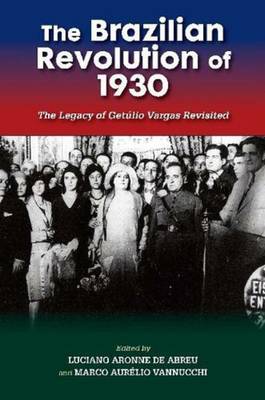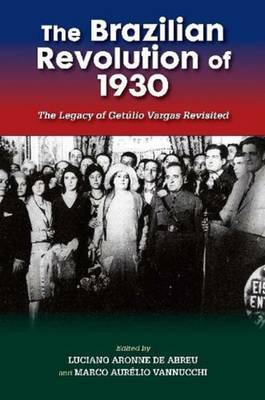
- Afhalen na 1 uur in een winkel met voorraad
- Gratis thuislevering in België vanaf € 30
- Ruim aanbod met 7 miljoen producten
- Afhalen na 1 uur in een winkel met voorraad
- Gratis thuislevering in België vanaf € 30
- Ruim aanbod met 7 miljoen producten
Zoeken
The Brazilian Revolution of 1930
The Legacy of Getúlio Vargas Revisited
€ 76,95
+ 153 punten
Omschrijving
The third of October 2020 marked the 90th anniversary of the Brazilian Revolution of 1930. Although this event is recognized in Brazilian historiography as an important landmark in the construction of contemporary Brazil, debate, discourse and indeed publications commemorating the event have been much less numerous and profound than would be expected. Comparisons have been made with what took place in 1980, the year of the revolutions fiftieth anniversary, where meaningful historical judgements were made across a wide spectrum of society and the political establishment. It is pertinent to ask why there is no longer the appetite for substantive discussion on the Vargas period. Perhaps it is due to the new political climate in Brazil in the last decade, especially with regard to various projects aimed at labour and trade union reform, the main legacies of the revolutionary period which today are considered by many as obstacles to the modernization of the labour market and the country's economic development. Given the economic imperatives and aims of the 1930 Revolution, a re-evaluation of the Vargas Period will assist in better understanding the contemporary economic issues that face Brazil today. The exercise is neither one of nostalgia or exaltation of this past period, but rather to offer a (positive and negative) overview of Vargas legacy and the vast historiography that surrounds it. Scholars, politicians, business and the Brazilian workforce need to learn from past economic choices in order to better understand the challenges that contemporary Brazil faces. Recently proposed reforms have strong overtones to the revolutionary agenda of the 1930s, namely the forging of a New Brazil and the necessity of avoiding political schism. This book examines the political, economic, labour, cultural, military, and gender ramifications that will guide debate.
Specificaties
Betrokkenen
- Uitgeverij:
Inhoud
- Aantal bladzijden:
- 272
- Taal:
- Engels
- Reeks:
Eigenschappen
- Productcode (EAN):
- 9781789761009
- Verschijningsdatum:
- 1/07/2021
- Uitvoering:
- Paperback
- Formaat:
- Trade paperback (VS)
- Afmetingen:
- 154 mm x 229 mm
- Gewicht:
- 449 g

Alleen bij Standaard Boekhandel
+ 153 punten op je klantenkaart van Standaard Boekhandel
Beoordelingen
We publiceren alleen reviews die voldoen aan de voorwaarden voor reviews. Bekijk onze voorwaarden voor reviews.






